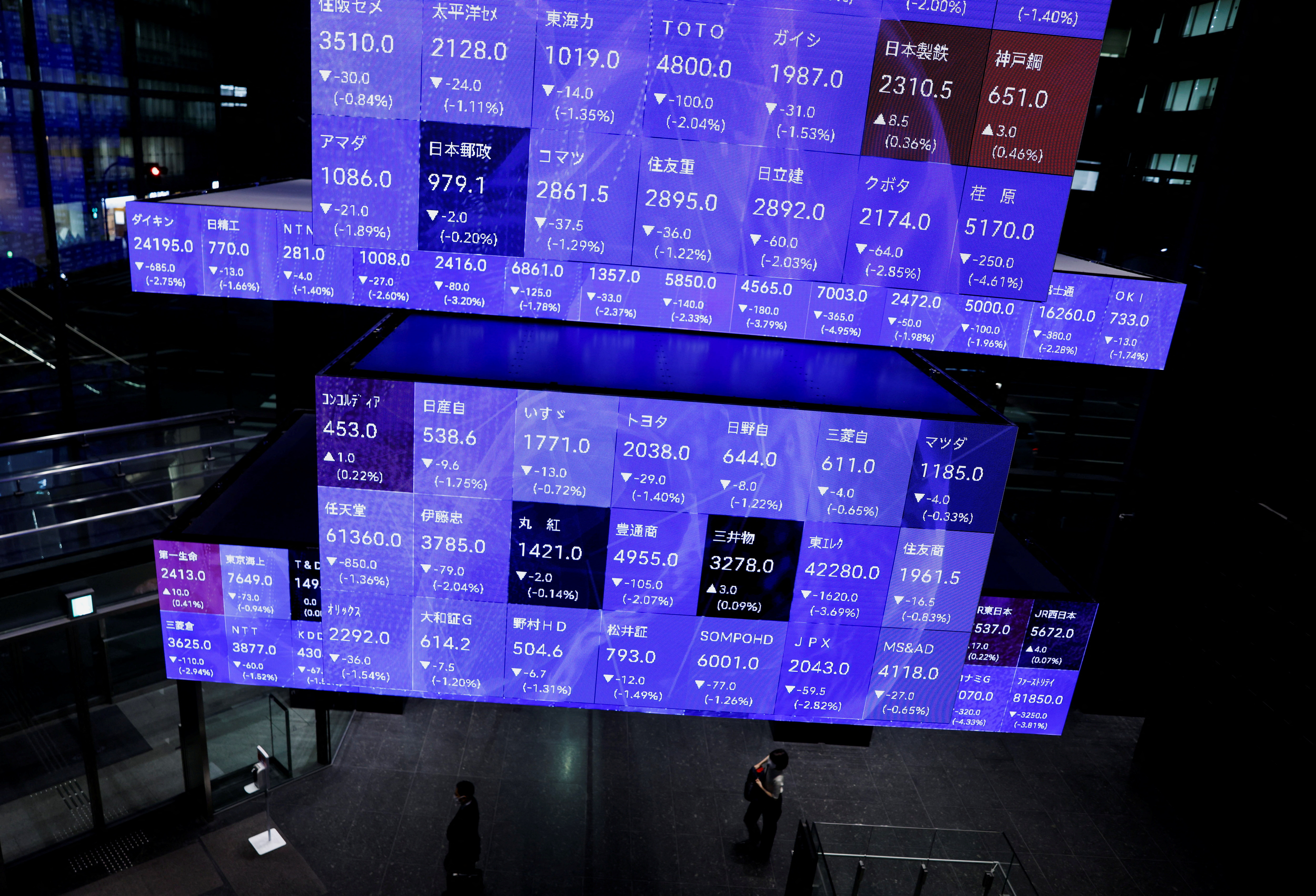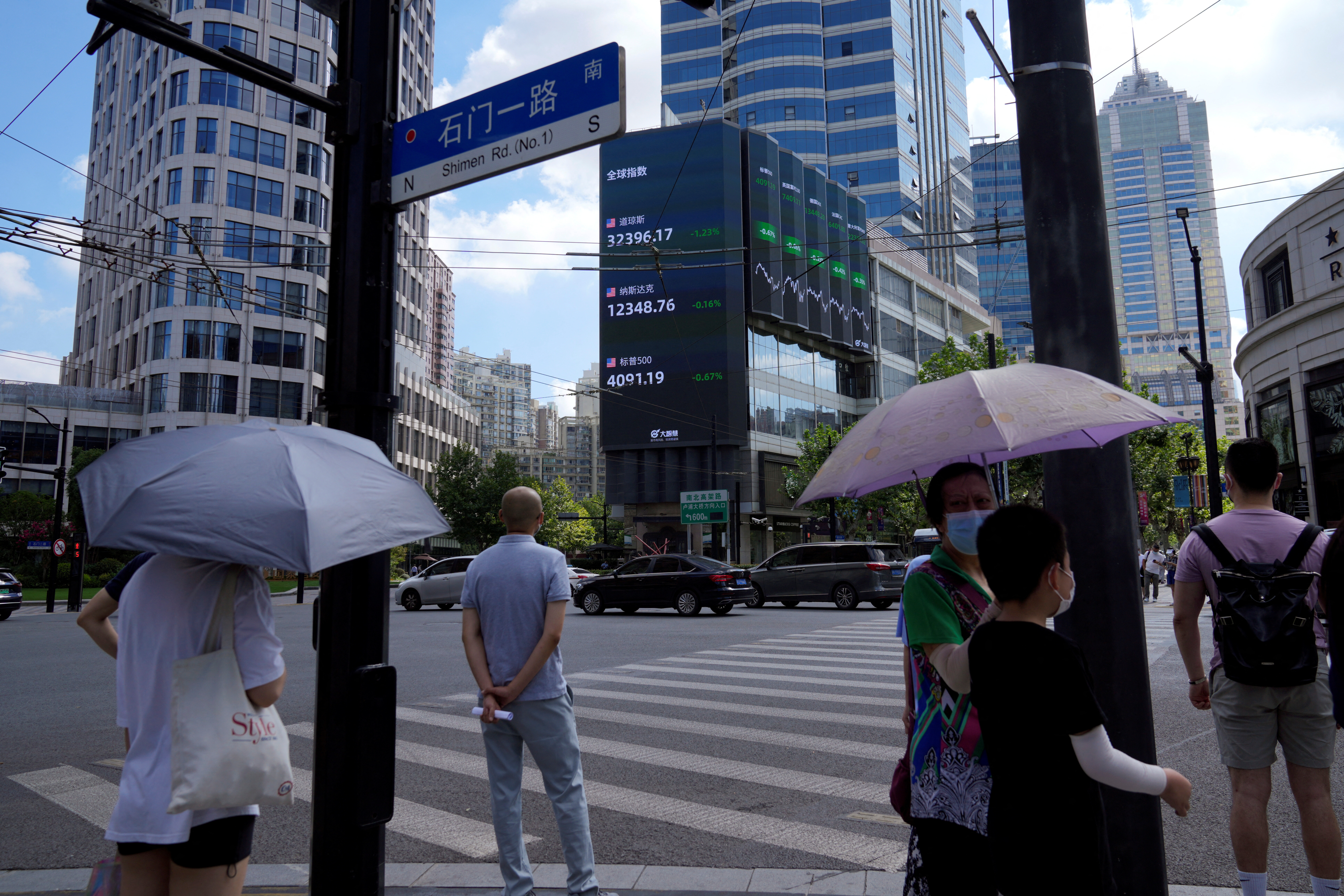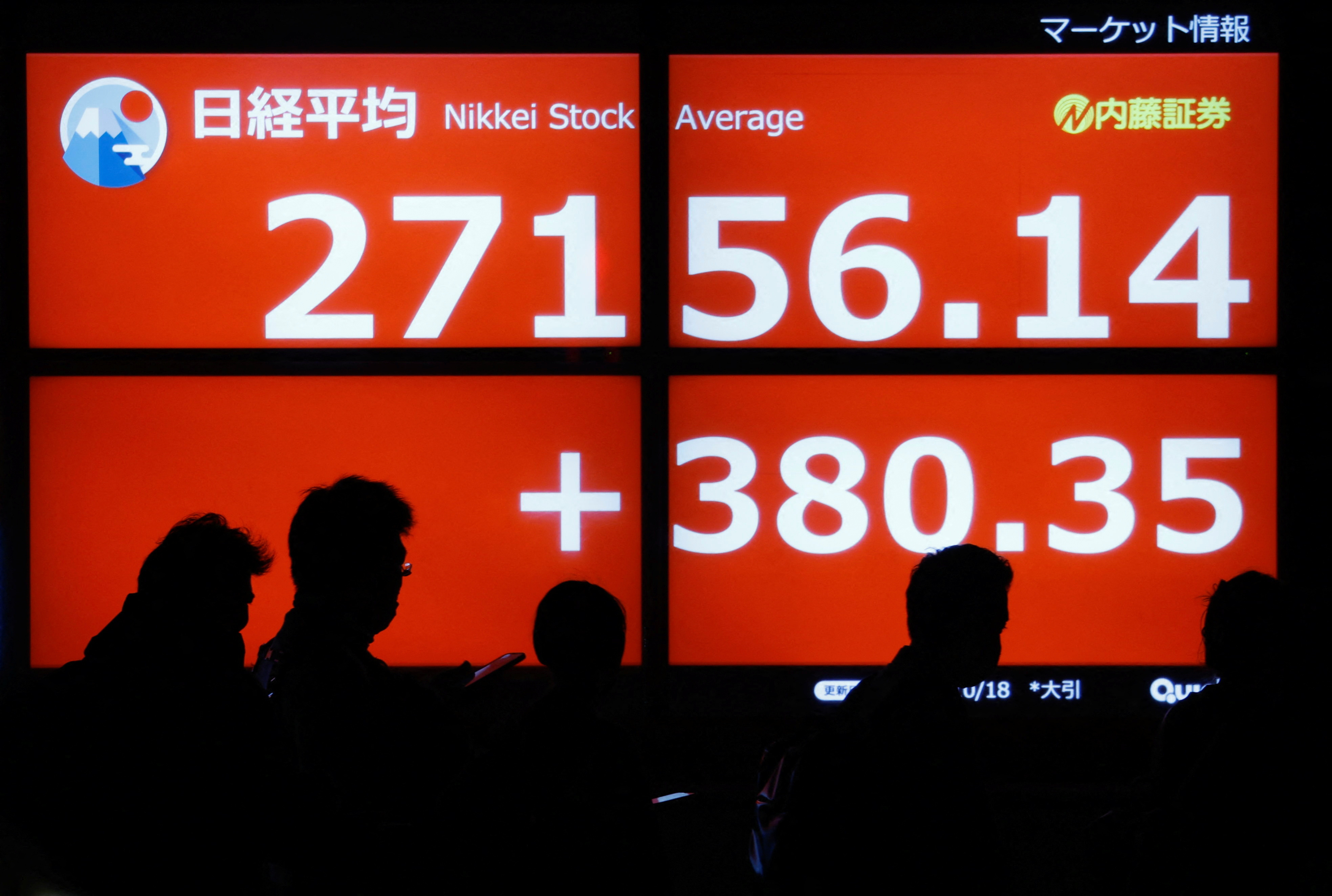U.S. stocks rose on Tuesday, rebounding in light trading from a multi-session sell-off as equity investors hunted for bargains, but the greenback lost altitude and Treasury yields jumped in the wake of an unexpected policy pivot from the Bank of Japan.
All three major U.S. equity indexes opened in the red but pulled a U-turn within an hour, while a jump in the yen sent the dollar lower and 10-year U.S. Treasury yields touched their highest level this month in reaction to Japan’s central bank’s surprise policy change aimed at easing the cost of stimulus.
As of Monday’s close, the benchmark S&P 500 had fallen 5% from last Tuesday. Wall Street’s “upward move is on relatively light volume,” said Oliver Pursche, senior vice president at Wealthspire Advisors, in New York. “Investors are asking themselves should a stock like Amazon be down 50% this year? That’s what investors are looking at.”
Indeed, the S&P 500, the Dow and the Nasdaq are all on track to notch their biggest annual percentage drops since 2008, the darkest year of the Global Financial crisis.
“I would not look at 2022 as a playbook for 2023,” Pursche added. “I would think that at some next year there will be a change in market leadership and growth will once again outperform value.”
The Dow Jones Industrial Average (.DJI) rose 156.46 points, or 0.48%, to 32,914, the S&P 500 (.SPX) gained 15.47 points, or 0.41%, to 3,833.13 and the Nasdaq Composite (.IXIC) added 39.09 points, or 0.37%, to 10,585.12.
European stocks were pulled lower by the real estate sector after the Bank of Japan signaled it would allow long-term interest rates to rise, joining its global counterparts in their inflation taming policy tightening.
The pan-European STOXX 600 index (.STOXX) lost 0.15% and MSCI’s gauge of stocks across the globe (.MIWD00000PUS) gained 0.38%.
Emerging market stocks lost 0.55%. MSCI’s broadest index of Asia-Pacific shares outside Japan (.MIAPJ0000PUS) closed 1.06% lower, while Japan’s Nikkei (.N225) lost 2.46%.
U.S. Treasury yields jumped after the Bank of Japan broadened its yield curve control, which prompted a global bond sell-off.
Benchmark 10-year notes last fell 26/32 in price to yield 3.6769%, from 3.583% late on Monday.
The 30-year bond last fell 68/32 in price to yield 3.7365%, from 3.623% late on Monday.
Japan’s surprise policy review sent the yen to a four-month peak against the greenback, and the dollar fell sharply against a basket of currencies.
The dollar index fell 0.84%, with the euro up 0.36% to $1.0643.
The Japanese yen strengthened 3.92% versus the greenback at 131.76 per dollar, while Sterling was last trading at $1.2155, up 0.07% on the day.
The softer dollar boosted crude prices, but that advance was held in check by spiking COVID cases in China, shortly after Beijing relaxed its zero-COVID policy.
U.S. crude rose 0.55% to $75.60 per barrel and Brent was last at $80.50, up 0.88% on the day.
Gold breached the $1,800 level as the dollar lost altitude.
Spot gold added 1.6% to $1,815.09 an ounce.
Related Galleries:




